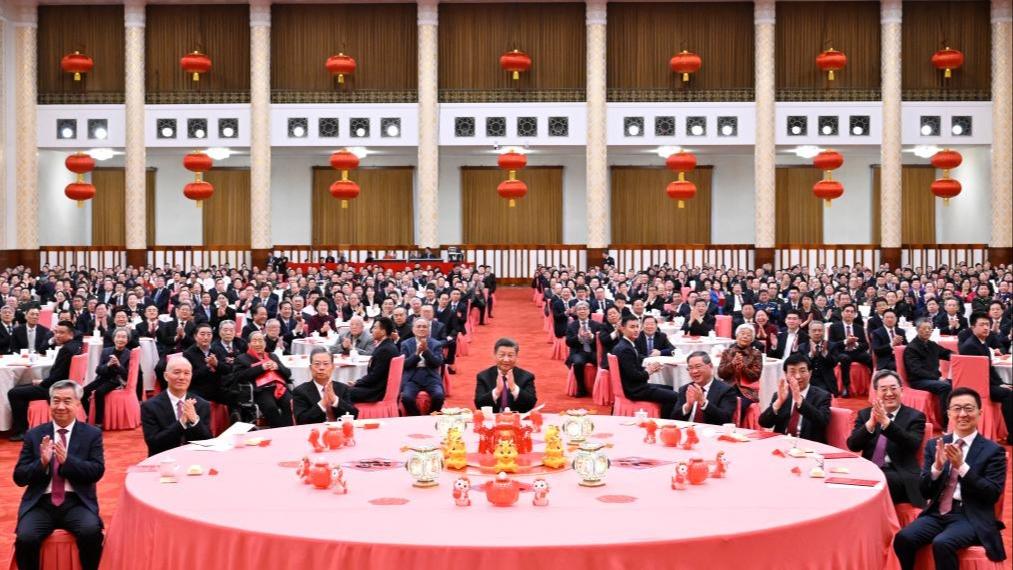Why does the U.S. knowingly and willingly slide down the hole of war?

If one were to look back on 2021 in 10 years'time, two events are likely to stand out.
The first is the upheaval in Afghanistan. Having stationed troops in the country for 20 years, the U.S. left in a hurry and the Afghan Taliban swept back to power. The world witnessed the humbling of a superpower by a small group of hardliners.
The other is Huawei CFO Meng Wanzhou's return to China. As a result of the Chinese government's relentless efforts, Meng, who had been arbitrarily detained by Canada "at the request of the U.S." for over 1,000 days, finally returned home.
The two events, while seemingly independent, point to a reality we have become all too familiar with in the past decade: the U.S. reluctantly pushing the pause button on a war it unilaterally waged, be it a hot war that involved the shedding of blood or a trade or tech war fought ostensibly on legal grounds.
They signal the fall of America's unipolar hegemony and the end of an era where the U.S. is the only superpower. It’s baffling that while the U.S. has never won a real military victory since WWII, it repeatedly stirs up new conflicts. Why does the U.S. keep sliding down the hole of war?
To maintain hegemony
Reason one: the U.S. was born out of wars, rose through wars and actively pursues wars. Since its founding, it has increased the size and capacity of its military forces, bolstered the structure and dimensions of the state apparatus, and expanded the scope and boundaries of state governance through different forms of wars.
This bloody process of nation-building has accelerated the transformation of the U.S. from a federal republic to a regional hegemon and ultimately, to the only superpower in the world. It is fair to say that wars are at the heart of America's rise to global hegemony. Without the primitive capital accumulation and expansive impulse brought about by wars, the U.S. would not be the country that it is today.
It is American wars, both internal and external, that have compiled the country's history of nation-building and global expansion. It has not only defined the way the U.S. exists today, but also locked the country in a self-perpetuating system of war, so much so that American scholar Robert Kagan described the U.S. as a bellicose "dangerous nation." Former U.S. President Jimmy Carter put it bluntly in a speech in 2019 that America was "the most warlike nation in the history of the world."
It is also wars and hegemony that have betrayed the "fairytale" Americans have so elaborately yarned. As William J. Novak, professor of law at the University of Michigan, said, American elites for a long time have tried to make the history of the country look like a fairytale of checked power and limited government, and a glorious story about freedom and democracy, but in the meantime turned a blind eye to the stark reality of America's interventions, impositions and invasions worldwide.
In other words, by running in the opposite direction to its national imagination of a small government and its original democratic and liberal pursuits, the U.S. has turned itself into a country always at war. It attempts to export the American-style "democracy" globally as a universal model, and even topples the governments of other countries in the name of democracy, leading to countless humanitarian disasters. This only serves to remind the world of the fact that America's national development and status as a hegemon are built on wars and wars only.
To gain more power

Reason two: America's political system is controlled by war-driven military-political interest groups. The operation of de facto political power in the U.S. hinges on the continuation of a state of war or emergency. Such a state justifies any mandatory actions taken by the government, and makes it easier for the president to bypass the Congress and the Supreme Court and exercise power as he wishes.
The U.S. Constitution bestows the president with dominant power to make diplomatic and military decisions, and the privilege to breach laws under a state of emergency. Over the past century, the U.S. government has been using crises, wars and emergencies as an instrument to gain greater power. The president and military-political interest groups have been the biggest beneficiaries.
During the process, coordination between Congress and the Supreme Court with the president overpowers checks and balances. Meanwhile, bitter partisan brawls contribute nothing to resolving crises, making the president and his military-political interest groups the ultimate troubleshooters and giving them even more power.
American scholar Arthur M. Schlesinger Jr. noted that the U.S. president increasingly assumed predominant political and military power, giving rise to a political phenomenon most salient in the country today – the imperial presidency. The potential risk created by such unchecked and unbalanced power is a growing concern for Americans.
To seek profits

Reason three: the American economy is tied to the super chariot of the military-industrial complex. Since the beginning of the 20th century, rounds of external wars have made the country a military power with the world's largest-scale equipment, the most advanced technologies and most influential defense contractors.
The colossal military industry is a primary driving force behind America's economic growth, with its upstream and downstream industries contributing nearly 40 percent to the country's national GDP. This has also facilitated the rise of a gigantic interest group that spans the military, political, capital and academic sectors and often dictates domestic and foreign policies – the military-industrial complex.
In the meantime, profits generated by wars are grabbed by large corporations. According to independent American think tank Security Policy Reform Institute, the top five American defense contractors, namely Lockheed Martin, Raytheon, General Dynamics, Boeing and Northrop Grumman, have pocketed $2.02 trillion from the Afghanistan war alone. This is only a small part of their profit over the past two decades.
Brown University estimated that military operations after the 9/11 attack cost American taxpayers $6.4 trillion. Much of the money went to the top five U.S. defense companies, at the expense of investment in domestic public goods and compromising public welfare for Americans.
Such an unequal distribution of interests will not end as a result of anti-war protests. Instead, it will keep tickling the profit-seeking desire of military-industrial companies, leaving the U.S. either bogged down in the quagmire of war or on the cusp of a new conflict.
A belligerent U.S. has won hegemony but lost its sense of self: it can still tell beautiful stories, but it ends up betraying its own values. The foundations of the nation have been shaken. Further conflicts, social crises and even political decline will follow, as reality collides with America's political principles and social ideals.
American politics and economy are now tied to the chariot. This means the absence of wars and external stimulants will demotivate the U.S. from integrating political and economic systems, dragging it further into the morass of political polarization and draining the momentum of sustained national development. This is the price the U.S. has to pay for its own military games, a reality from which there is no exit plan.



